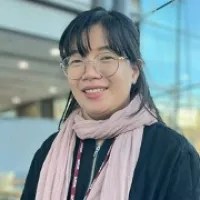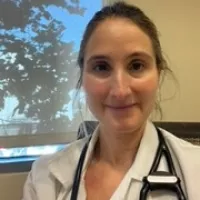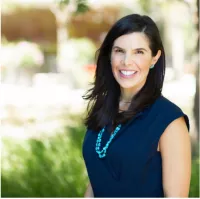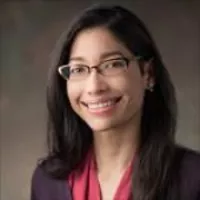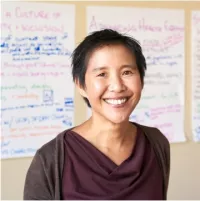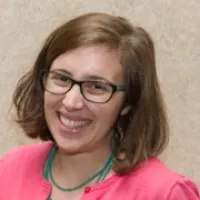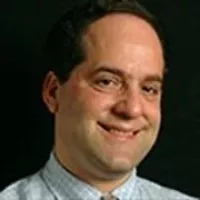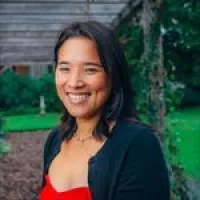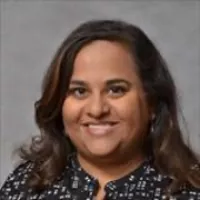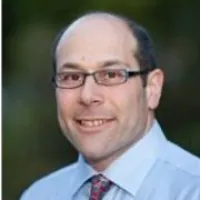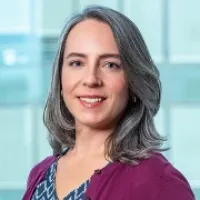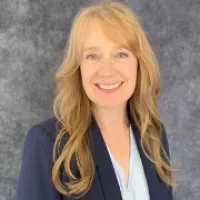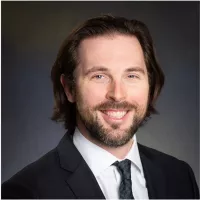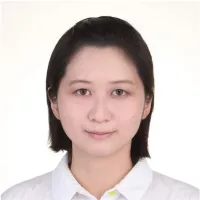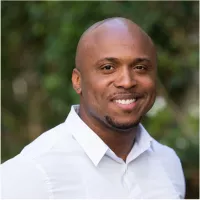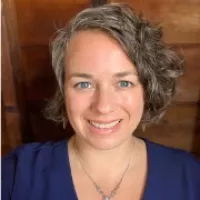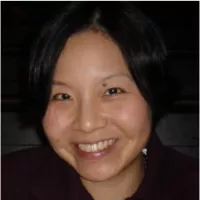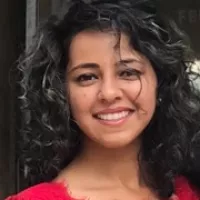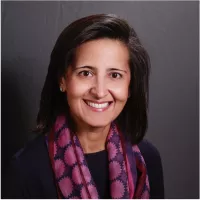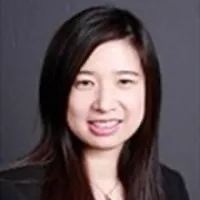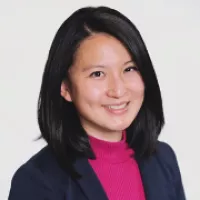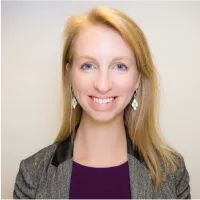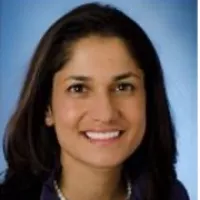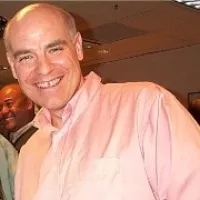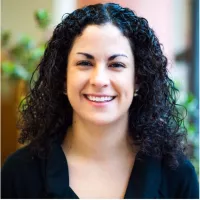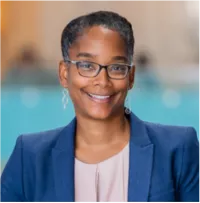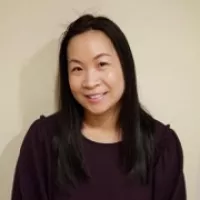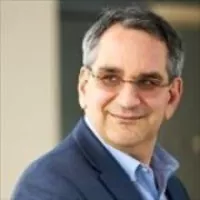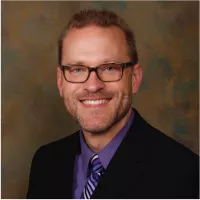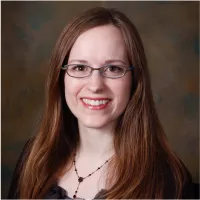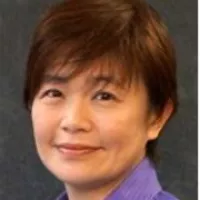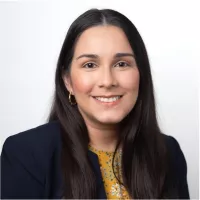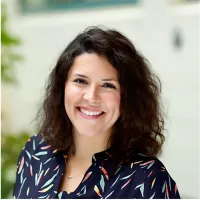If you are interested in becoming an Affiliate MERC member, please visit our Join MERC page here for more information.
Dr. Pearl Ante-Testard is an epidemiologist with a clinical background in nursing. Her training has been focused on equity research in HIV in sub-Saharan Africa using advanced and novel epidemiological and biostatistics methods. She conducted advocacy works and initiatives in planetary health as a Planetary Health Campus Ambassador and co-founder and president of the PlaHNet of Young Professionals. She was part of the Programme Committee during the PHAM 2022. During her postdoctoral fellowship at the UCSF, her research investigates the effects health interventions on child health incorporating an equity and planetary health lens.
Dr. Nicole Appelle is Associate Professor of Medicine in the Division of General Internal Medicine at UCSF. She is committed to ensuring quality improvement efforts consistently promote health equity for our diverse populations of patients.
Dr. Aaron Baugh is Assistant Professor of Medicine at UCSF. Dr. Baugh grew up in Ann Arbor, Michigan. He completed medical school and residency at the University of Toledo Medical School. Afterwards, he matriculated to the UCSF for Pulmonary and Critical Care Medicine fellowship, where he would stay after graduation to launch his academic career. Dr. Baugh has a deep commitment to health equity. Internally, he maintains a strong focus on supporting an inclusive learning environment. His research program explores racial and socioeconomic health disparities in lung function and obstructive lung disease.
Dr. April J. Bell is an Assistant Professor in the Department of Family and Community Medicine in the School of Medicine at the University of California San Francisco. Dr. Bell is a community health researcher, social epidemiologist, and health equity advocate dedicated to improving the sexual and reproductive health outcomes of historically marginalized adolescents. Her research focuses on reducing health disparities in sexual and reproductive health among Black adolescent women and girls.
Dr. Tasce Bongiovanni is Assistant Professor of Medicine in the Department of Surgery at UCSF.
Therese Chan Tack, DO MPH DABOM
Dr. Therese Chan Tack is an Associate Professor of Clinical Medicine and Physician Lead of Telehealth Programs for UCSF Health. She has experience in leading nationally-recognized preventive care quality improvement projects. She has research experience aimed at improving digital health adoption, equity, and chronic disease management.
Dr. Maria Chao is an Associate Professor of Medicine at the University of California San Francisco and the Associate Director of Research and the Associate Director for Health Equity and Diversity at the UCSF Osher Center for Integrative Medicine. Dr. Chao’s overarching research goal is to investigate how complementary and integrative medicine can advance health equity. Her current program of research focuses on non-pharmacologic approaches to improve quality of life among diverse and underserved populations living with chronic conditions. Her research bridging public health and integrative medicine has received funding support through the NIH/National Center for Complementary and Integrative Health, numerous foundations, and the Patient-Centered Outcomes Research Institute. Dr. Chao is committed to building pipelines to improve diversity in the integrative medicine workforce. She co-directs two programs to support this goal, an Integrative Oncology Collaborative and an NIH-funded summer Training program in Integrative Health Equity and Applied Research. She also serves on the advisory board of Integrative Medicine for the Underserved and the steering committee of the Bravenet Practice-Based Research Network in Integrative Medicine.
Dr. Alison Cohen is an Assistant Professor of Epidemiology and Biostatistics who does community-driven, policy-relevant applied epidemiology and public health research to study social and environmental determinants of health inequities, and possible interventions that could reduce these inequities. Much of Dr. Cohen's research is in partnership with community-based organizations, with the goal of systematically documenting health inequities using community-based participatory research approaches and harnessing the power of research-practice partnerships. Dr. Cohen has experience doing multidisciplinary research and evaluation on topics including public health, education, youth, civic engagement, and the environment. Dr. Cohen conducts research locally, nationally, and internationally, in English, Spanish, and French.
Dr. Kenneth Covinsky is a clinician researcher in the UCSF Division of Geriatrics. His research focuses on the determinants and outcomes of disability in older persons. He is the Director of the UCSF Older Americans Independence Center (Pepper Center).
Dr. Elizabeth Dzeng is an Associate Professor in Residence in the Division of Hospital Medicine at UCSF and a Senior Research Fellow at the Cicely Saunders Institute at King's College London. She is a hospitalist, sociologist, and ethicist who draws from diverse qualitative research methods including empirical bioethics, sociology, community-based participatory research, and human centered design to improve health equity and quality of care during serious illness. She is a recipient of a Beeson Award and Sojourns Scholar Leadership Award which funds her community-based participatory research focused on understanding and addressing structural racism and its influence on the quality of end-of-life care in older Black adults. Her other area of focus is around the influence of institutional cultures and policies on end-of-life care.
Dr. Sheiphali Gandhi is a Clinical Fellow of Medicine at UCSF.
Dr. Stuart Gansky is Professor, Associate Dean for Research, and Lee Hysan Chair of Oral Epidemiology in the School of Dentistry and Director of the UCSF Center to Address Disparities in Children's Oral Health (CAN-DO) and Co-Director of the NIMHD Research Coordinating Center to Reduce Disparities in Multiple Chronic Diseases.
Dr. Sarah B. Garrett is a medical and cultural sociologist. She works to promote health equity via stakeholder-informed mixed-methods research, focusing in particular on maternal health. She is core faculty at the Phillip R. Lee Institute for Health Policy Studies (IHPS) at UCSF. She is currently conducting an NIH-funded study (K01) focused on hospitals' work to advance maternal health equity.
Dr. Kristine Godziuk is an Assistant Professor in Physical Therapy and Rehabilitation Science. She has expertise in measuring body composition and phenotyping obesity, muscle loss, and sarcopenia in clinical populations with aging and musculoskeletal conditions. Her research examines weight-related equity issues in health care using an intersectional perspective.
Dr. Matthew Growdon is a geriatrician and Assistant Professor of Medicine in the Division of Geriatrics at the University of California, San Francisco (UCSF). He completed undergraduate training in History and Literature at Harvard College and medical and biostatistics training at Harvard University. He then completed internal medicine residency at Brigham and Women’s Hospital and the Harvard Multicampus Geriatric Medicine Fellowship. His research is focused on improving the safety, quality, and equity of prescribing and deprescribing among vulnerable older adults, with an emphasis on those with dementia or cognitive impairment.
Dian Gu is a Postdoctoral Fellow at the Center for Tobacco Control Research and Education (CTCRE), UCSF. She received her PhD in Health Economics/Health Services Research from the University of Texas Health Science Center at Houston. Along with her PhD study, she was a PhD trainee at MD Anderson Cancer Center. In that role, she gained experience in applying health economics to cancer research, collaborating on manuscripts with clinicians on multiple projects concerned with cancer patients’ healthcare utilization, expenditures, and health outcomes. After finishing her PhD, she joined the Institute for Health & Aging at UCSF. In the work there, she performed data analyses and collaborated on manuscripts with professors on a wide range of tobacco economics research projects. During the fellowship at CTCRE, Dian is interested in 1) estimating economic costs attributable to tobacco use for patients with cancer or other tobacco-related illnesses; 2) evaluating the economic impact of different tobacco control policies on the financial burden on vulnerable populations.
Dr. Anita Hargrave-Bouagnon is a physician-researcher focused on addressing health disparities in tobacco use, cancer prevention, and women’s health using implementation science strategies. Dr. Hargrave works as a general internist at the Richard Fine People’s Clinic, part of the San Francisco Health Network safety-net system. As BIRCWH K-12 Scholar, she is studying the impact of traumatic experiences on leading causes of mortality and morbidity for women using a longitudinal national cohort. Dr. Hargrave is currently PI of a TRDRP grant that is applying evidence-based behavior change theory to address disparities in smoking cessation during pregnancy for people who have experienced trauma. Dr. Hargrave also is a faculty member at BHHI, where she analyzes the impact of violence on homelessness and housing.
Orlando O. Harris, PhD, RN, FNP, MPH
Dr. Harris, is an Assistant Professor of Nursing in the Department of Community Health Systems, School of Nursing, and an Assistant Professor of Medicine in the Division of Prevention Science in the Department of Medicine at the University of California, San Francisco. His research focuses on the exploration of risk and protective factors in sexual and gender diverse communities of color. He also focuses on understanding the relationships between intersectional stigma, violence, mental health, HIV, and other health-related behavior outcomes. Dr. Harris leverages multi-methods data, using community-based participatory research methods, to inform culturally relevant interventions that improves the lives of vulnerable sexual and gender diverse communities. His research aims to reduce disparities in health within these communities by developing programs that improve self-efficacy and promote resilience. Dr. Harris was appointed as an expert panelist to the COVID-19 Prevention Network (CoVPN), a panel funded by the National Institute of Allergy and Infectious Diseases (NIAID), to review all COVID-19 related vaccine trials. Most recently, his research has shifted to explore factors related to COVID-19 vaccination uptake among Black/African American communities.
Dr. Krista Harrison is an Associate Professor in the Division of Geriatrics and the Philip R. Lee Institute for Health Policy Studies (IHPS) within the UCSF Department of Medicine; she is also an Atlantic Senior Fellow for Equity and Brain Health at the Global Brain Health Institute. She is an interdisciplinary social scientist with training in health policy, bioethics, health services research, hospice and palliative care, implementation science, gerontology, and brain health. Her research aims to improve models of care & policies for older adults living with, dying from, and grieving neurodegeneration.
Dr. Miranda Hill is an Assistant Professor in the Department of Obstetrics, Gynecology & Reproductive Sciences at UCSF. Dr. Hill is a social and behavioral scientist and champion for addressing the social isolation, connection, and healthcare engagement needs of underreached and hidden populations. Dr. Hill's research agenda aims to drive transdisciplinary innovation in social medicine through community-led and empirically informed approaches. She uses a community-engaged social network lens to explore the complexities between systems, social networks, and HIV. Her most recent line of research has centered on examining the contexts of HIV risk and healthcare (dis)engagement among mobile women, with the goal of developing multilevel interventions.
Dr. Alison Huang is a women’s health investigator, clinical epidemiologist, and clinical trialist at UCSF, where she leads a multidisciplinary team of clinical researchers in advancing scientific understanding and improving management of genitourinary health conditions in women of diverse backgrounds. She has examined the predictors, consequences, and treatment outcomes of urinary incontinence and other lower urinary tract syndromes in women in the Reproductive Risks of Incontinence Study at Kaiser (RRISK), a multiethnic cohort of Latina/Hispanic, African-American, Asian-American, and non-Latina white women in northern California. She has also designed and conducted NIH-funded randomized trials of behavioral and complementary interventions for urinary tract syndromes in women, including a pelvic floor yoga program for ambulatory older women with urinary incontinence, a slow-paced respiration program for women with overactive bladder syndrome, and an integrated behavioral treatment program for older adults with overlapping nocturia and insomnia. As a former NIA Resource Centers for Minority Aging Research scholar, she has also developed and validated new patient-reported outcome measures of genitourinary symptoms for use in ethnically diverse women, now administered in women's health studies in the United States and internationally.
Dr. Sabrina Islam is a postdoctoral researcher at the Center for Tobacco Control Research and Education. Her research uses qualitative- and multi-methods to understand socio-structural contexts of risk that disproportionately burden priority populations. Prior to joining UCSF, she completed a prevention science fellowship focused on substance use behaviors at UC Berkeley. Currently, Sabrina is using a community-engaged approach to contextualize how stigmatization impacts commercial tobacco and cannabis co-use as well as the research participant experience among American Indian young adults in California.
Dr. Alka Kanaya has focused her research in type 2 diabetes and cardiovascular disease prevention, primarily in Asian American populations over the past decade. She is leading the Mediators of Atherosclerosis in South Asians Living in America (MASALA) Study to better understand factors that explain the high rates of diabetes and heart disease among South Asians. She is a practicing general internist at UCSF and teaches residents and fellows both clinical medicine and research methods.
Dr. Elaine Ku is a pediatric and adult nephrologist and health services researcher. The global context of her research program focuses on understanding differences in the epidemiology, clinical management, and outcomes of individuals with kidney disease and the conduct of clinical trials to improve outcomes in chronic kidney disease. Dr. Ku is especially interested in transitions of care, such as that between adolescence and young adulthood, as well as that between advanced chronic kidney disease and end-stage kidney disease (including dialysis and transplant) and the health disparities/inequities therein.
Dr. Lingsheng Li is a Geriatrician, Palliative Care physician, and T32 Aging Research Fellow with the Division of Geriatrics at UCSF. After completing her undergraduate studies and Master of Health Science degree at Johns Hopkins University, she underwent medical training at University of Oklahoma College of Medicine and Internal Medicine residency at Johns Hopkins Bayview Medical Center. Her primary research interest is to improve the way clinicians provide care for and communicate with Asian American, Native Hawaiian, and Pacific Islander (AANHPI) older adults and their caregivers. Her other passions are in narrative writing and graphic medicine, particularly in thinking about how to use narrative drawings in research studies to represent lived experiences of study participants.
Dr. Dilliys Xiaodi Liu is a Postdoctoral Scholar in the UCSF Department of Psychiatry and Behavioral Sciences. She is an epidemiologist with research interests in neuroimaging, Alzheimer's disease, stroke, sleep, and machine learning.
Dr. Rachel Logan is an Assistant Professor in the Department of Family and Community Medicine (FCM) at the University of California, San Francisco (UCSF). Dr. Logan a public health researcher focused on improving sexual and reproductive health care for historically marginalized and excluded communities using structurally informed perspectives, such as reproductive justice. She completed an NIMHD-funded postdoctoral fellowship in the FCM Department at UCSF. Dr. Logan earned her PhD in public health from the College of Public Health at the University of South Florida. She also earned an MPH from George Mason University.
Dr. Jennifer Mandal is an Assistant Professor of Medicine in the Division of Rheumatology at UCSF. She completed her medical school, internal medicine residency, and rheumatology fellowship training at UCSF before joining the faculty in 2019. In her clinical work, she serves a diverse population of vulnerable rheumatology patients at San Francisco’s safety net hospital, Zuckerberg San Francisco General Hospital. Her scholarship focuses on medical education, health equity, and improving access to rheumatology care. She is the Director of the Rheumatology Access Expansion (RAE) Initiative, a program dedicated to supporting people living with rheumatic diseases in communities with little access to rheumatology providers, through novel education programs for primary care providers and community health representatives. She is also the UCSF School of Medicine Lead for Interprofessional Education, the Director of Evaluation for the UCSF Rheumatology Fellowship Program, and the recipient of the Ira M. Goldstein Award for Outstanding Teaching in Rheumatology.
Dr. Solmaz Poorsattar Manuel is a physician-educator-researcher in the UCSF Department of Anesthesia and Perioperative Care. Clinically, Dr. Manuel specializes in Acute Pain, Regional Anesthesia, and Neuroanesthesia. Academically, Dr. Manuel is interested in health care disparities and quality improvement in perioperative care. Her work has been presented and published broadly. In addition she is the course director for the foundational cardiac, respiratory and hematology block for first year UCSF medical students, and faculty advisor in the anesthesiology residency program. Dr. Manuel’s excellence as a physician-educator-researcher has been recognized through multiple competitive awards, including the UCSF Haile T. Debas Academy of Medical Educators Excellence in Teaching Award, the UCSF SOM Class of 2020 Convocation Award for Excellence in Teaching by Clinical Faculty, and the UCSF Ronald D. Miller Award for Excellence in Resident Mentorship.
Tor Neilands is Professor in the Division of Prevention Science in the Department of Medicine at UCSF. He is an applied data analyst and statistician. His methodological areas of interest are multivariate statistical models for social and behavioral science research, specifically latent variable models for survey scale development and validation, as well as mixed effects (i.e., multilevel; HLM) models for clustered and longitudinal data, including dyadic data. His substantive interests include training the next generation of health equity researchers working in U.S. minority communities.
Lisa Ochoa-Frongia, MD is a clinician-educator and Associate Professor of Medicine at UCSF, in the Division of General Internal Medicine at San Francisco General Hospital (SFGH). Dr. Ochoa-Frongia is a practicing primary care physician and Associate Medical Director at Richard Fine People's Clinic. She is also the Ambulatory Site Director for the UCSF Internal Medicine Residency at SFGH. Dr. Ochoa-Frongia is currently studying best practices in the treatment of anxiety and depression in the primary care setting, behavioral health integration in safety-net clinics and mental health curricula for primary care providers.
Akinyemi Oni-Orisan, PharmD, PhD
Dr. Akinyemi Oni-Orisan is Assistant Professor of Clinical Pharmacy in the Department of Clinical Pharmacy at UCSF.
Dr. Nynikka Palmer is an Associate Professor at UCSF, in the Division of General Internal Medicine at Zuckerberg San Francisco General Hospital. She has a long history and commitment to health equity research, specifically focused on unraveling the mechanisms of cancer disparities in high-quality prostate cancer care and health outcomes among African Americans, with a depth of knowledge in cultural perspective, patient-centered care and communication. Community engagement, including the “insider researcher” perspective, grounds her work, and she strongly believes in the adage, “nothing about me without me,” as stakeholders’ perspectives are essential to advance research and optimize healthcare.
Dr. Van Ta Park is a Professor at the University of California at San Francisco (UCSF), School of Nursing, Department of Community Health Systems, and teaches in the Advanced Public Health Nursing program. Her research areas include dementia caregiving, mental health, and health care access. Over the years as a community-based researcher, she has built research collaboration relationships with many local, regional and national community-based organizations and leaders in the Asian American and Pacific Islanders (AAPI) communities. She has a PhD in Health Policy and Management, concentration in social/behavioral sciences (Johns Hopkins University). She also has an MPH (Health Promotion), BS (Health Promotion and Disease Prevention Studies), and BA (Sociology) all from the University of Southern California. She also has a Certificate in Ethnogeriatrics from Stanford and did her NIDA post-doctoral fellowship at UCSF.
Dr. Michael Potter is a family physician and researcher in the Department of Family and Community Medicine. Dr. Potter is director of the San Francisco Bay Area Collaborative Research Network (SFBayCRN), San Francisco Bay Research Infrastructure Network (SFBayRIN), and the Team Science Program for UCSF's Clinical and Translational Sciences Institute. In these roles he provides leadership and consultation to promote mutually beneficial research partnerships between UCSF faculty and community-based healthcare organizations. In his own research, Dr. Potter focuses on the development and evaluation of primary care interventions that increase access to essential preventive services and chronic illness care. Dr. Potter is a graduate of Harvard College, Harvard Medical School, the UCSF Family Medicine Residency Program at San Francisco General Hospital, and UCSF's Advanced Training in Clinical Research Fellowship. He has been a member of the UCSF faculty since 1994.
Dr. Jesse Ristau is a primary care and addiction medicine doctor at UCSF health. She is the co-medical director of the DGIM embedded Addiction Medicine Service, and provides addiction services at ZSFG and UCSF Health, and is a clinical consultant on the NCCC Substance Use Warmline. In these roles she advocates for increased access to SUD care for diverse populations and health equity. She earned her medical degree from Boston University, completed her residency at the University of California, San Francisco, and a fellowship in addiction medicine at Zuckerberg San Francisco General Hospital.
Dr. Diana Robles is a Clinical Fellow of Medicine in the Department of Obstetrics, Gynecology & Reproductive Sciences at UCSF.
Dr. Jason M. Satterfield is the Academy Endowed Chair for Innovation in Teaching, Director of Behavioral Medicine and Professor of Clinical Medicine in the Division of General Internal Medicine at the University of California San Francisco. He received his B.S. in brain sciences from MIT and his Ph.D. in clinical psychology from the University of Pennsylvania. Dr. Satterfield's current interests include the integration of behavioral science in medical education, dissemination and implementation of evidence-based behavioral practices in primary care, and emerging mobile health technologies for behavioral health with a particular focus on smoking and substance use disorders. His current projects include training and implementation of medication-assisted treatment for opioid use disorders, support for the National Center for Tobacco Free Recovery, screening and brief interventions for substance misuse and tobacco, and the INSPIRE project which delivers a trilingual, multi-modal chronic pain intervention using a mobile app and a telehealth pain coach.
Dr. Lauren Shapiro is an orthopaedic surgeon and health services researcher interested in better understanding healthcare quality and value, shared-decision making and patient preferences, and health equity. Dr. Shapiro is working to design tools to improve access to and quality of care for all patients.
Dr. Rebecca Sudore is a geriatrician, palliative medicine physician, implementation scientist, and professor of medicine at the University of California, San Francisco. She directs the Innovation and Implementation Center on Aging & Palliative Care Research and the Vulnerable Populations Aging Research Core of the National Institutes on Aging-funded Pepper Center. She is also the creator of the evidenced based, online PREPARE for Your Care advance care planning program and the PREPARE easy-to-read advance directives, which are available for all 50 states in several languages.
Dr. Jessica Trowbridge is an Associate Researcher in the Department of Obstetrics, Gynecology & Reproductive Sciences at UCSF.
Dr. Janice Tso is a practicing clinical psychologist and Professor of Psychiatry and Behavioral Sciences at the University of California San Francisco (UCSF). The mission of her research program is to promote health equity by developing accessible interventions to facilitate individuals' acquisition of skills and/or utilization of evidence-based treatment. These interventions aim to empower individuals to make informed health decisions and actions, such as being committed in tobacco abstinence or obtaining needed cancer screening, and taking an active role in caring for their own health.
Dr. Ana Velázquez Mañana is an Assistant Professor at the University of California San Francisco, focused on thoracic oncology. Dr. Velázquez is an advocate for workforce diversity and gender equity. During her residency program, she co-founded the first institutional Women in Medicine group, and during her fellowship training, she co-led the Fellowship Diversity Council. This effort brings together faculty and trainees from different medicine subspecialties who belong to groups underrepresented in medicine. Her career goals are to combine her clinical focus in thoracic oncology with her research interests in the study of cancer disparities and developing supportive interventions for patients with cancer from vulnerable and underrepresented backgrounds. She hopes to continue to advocate for healthcare workforce diversity and gender equity.
Dr. Mia Williams is an Assistant Clinical Professor in the Division of General Internal Medicine at UCSF, practicing at the General Internal Medicine Practice at Divisadero Street. She is particularly interested in chronic disease management, quality of life, preventive care, patient-centered medicine, and Latino Health. She is involved in medical education and her teaching efforts include precepting trainees in internal medicine continuity clinic.
UCSF does not use race, gender, sex, or other protected categories or proxies for protected categories in the selection process.
